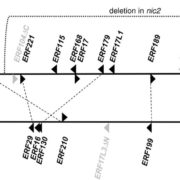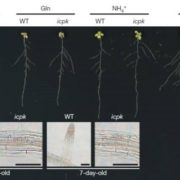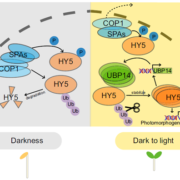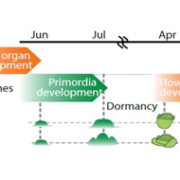Transcriptomics of deepwater rice (Plant Physiol)
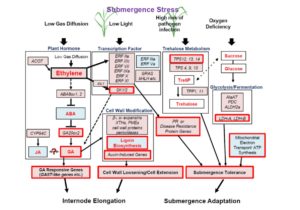 For most plants, becoming submerged under water can be lethal due to a restriction in gas exchange. One strategy for submergence tolerance is called an escape strategy, such as that employed by deepwater rice; the plant elongates rapidly to raise its leaves above the water level. Minami et al. used transcriptomics to further characterize the deepwater rice response. Key genes involved in the elongation response include those involved in “gibberellin biosynthesis, trehalose biosynthesis, anaerobic fermentation, cell wall modification and transcription factors that include ethylene-responsive factors.” The study also identified a role for jasmonic acid in internode elongation. Collectively, these transcriptional responses can protect against submergence stress by contributing to internode elongation, alternative energy production systems, and defense against pathogens. (Summary by Mary Williams) Plant Physiol. 10.1104/pp.17.00858
For most plants, becoming submerged under water can be lethal due to a restriction in gas exchange. One strategy for submergence tolerance is called an escape strategy, such as that employed by deepwater rice; the plant elongates rapidly to raise its leaves above the water level. Minami et al. used transcriptomics to further characterize the deepwater rice response. Key genes involved in the elongation response include those involved in “gibberellin biosynthesis, trehalose biosynthesis, anaerobic fermentation, cell wall modification and transcription factors that include ethylene-responsive factors.” The study also identified a role for jasmonic acid in internode elongation. Collectively, these transcriptional responses can protect against submergence stress by contributing to internode elongation, alternative energy production systems, and defense against pathogens. (Summary by Mary Williams) Plant Physiol. 10.1104/pp.17.00858


